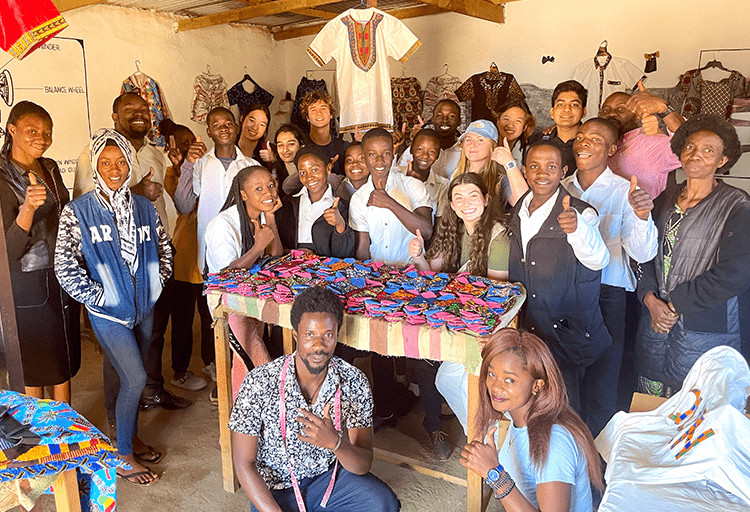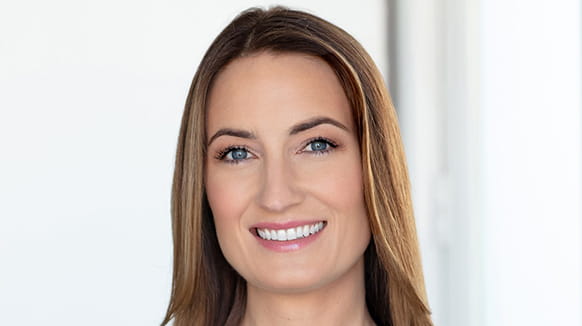A team of Haynes Boone attorneys, led by Counsel Sharon Crane, assisted students from The Pennington School’s Applied Science program in obtaining allowance for a United States design patent for their award-winning reusable menstrual product. The students, part of the Women in STEM Solving Problems (WISSP) club, sought to patent the product in their ongoing effort to improve the lives of women and girls in the African country of Malawi.
The WISSP pad is designed to be affordable, durable and easy to make using materials available in the Dzaleka Refugee Camp, just one of many places where women face menstrual health challenges. To date, more than 16,000 WISSP pads have been distributed in Malawi and more than 175 girls have completed a “Learn to Sew” program, also designed by the Pennington students, that teaches teenagers how to make and maintain the product. This work has had a positive impact on the lives of 1,600 tailors, seamstresses, sellers and beneficiaries who are now able to stay in school during their menstrual cycles.
“It is hard to imagine where our project would be at this time without the generous support of Sharon Crane and the legal counsel support of Haynes Boone,” said William S. Hawkey, Ph.D., who is head of The Pennington School. “It is not often that high school students are involved with research and development that has the potential to change lives for the better. At The Pennington School, our students have benefited from the dedication and expertise of outstanding teachers like Susan Wirsig and outside advisors who have supported and encouraged their project development efforts in Malawi.”

The project has earned international recognition, placing in the top 10 at the MIT Solve Global Challenge, top five in HP’s Girls Save the World Competition, second at IP World Innovation, and first in Whalebone Magazine’s Lemonade Contest.
“This is an extraordinary student-led initiative that combines invention with real-world empathy,” said Crane, who has advised the school throughout the patent process. “What these young women have accomplished at such an early stage in their lives is inspiring, and we are proud to support their efforts to improve access to menstrual health and education in underserved communities.”
The Haynes Boone team consisted of Crane and Partner Vera Suarez, who provided pro bono support to the WISSP team throughout the multi-year patent application process. The initiative began after the students visited Dzaleka in 2022 and saw the lack of menstrual health resources firsthand.
“This patent is not the end of their journey,” Suarez said. “These students continue to see new challenges and invent new solutions to help meet them.”

Among this year’s efforts, WISSP students are designing a soap-making product using ingredients available in Malawi and have been working to author two culturally sensitive health information booklets for young girls. The team is working with U.S. doctors, local healthcare professionals and project leaders in Malawi to ensure the booklets are both accurate and accessible.
In addition to the WISSP pad, the WISSP team has developed other patent-pending technologies, including the “Better Kitchen Sink,” a water filtration system that incorporates found materials like plastic bottles and layers of gravel, sand and cotton. The device allows families to reuse water safely for household chores such as washing dishes and clothes.
To learn more about The Pennington School’s Women in STEM Solving Problems program, please visit wissppad.org.

